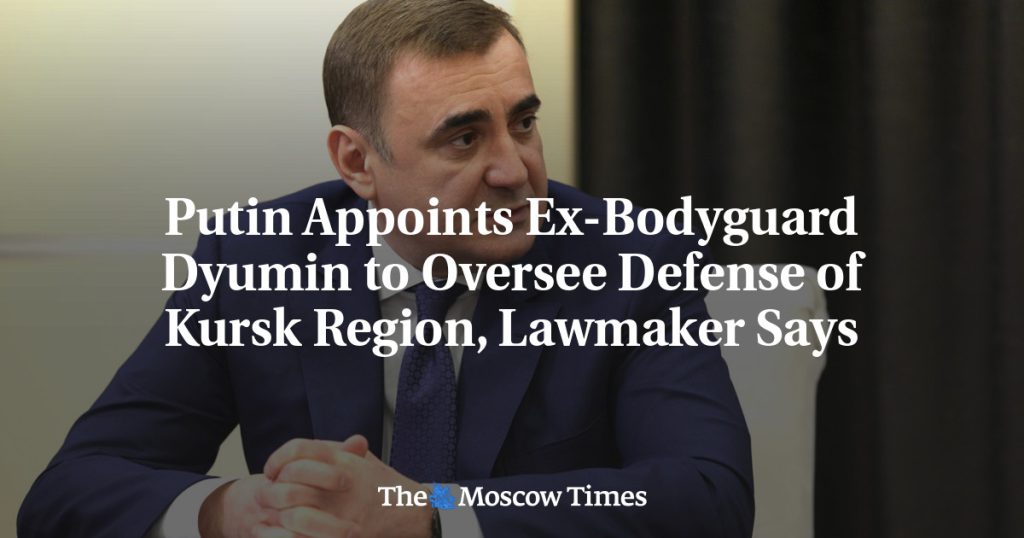President Vladimir Putin appointed his aide and former bodyguard, Alexei Dyumin, to oversee Russia’s military response to the Ukrainian offensive in the Kursk region. This decision was confirmed by State Duma lawmaker Nikolai Ivanov, who stated that Dyumin was tasked with supervising the counterterrorist operation in the region. Dyumin was the only non-cabinet member present at a televised meeting with Putin that focused on the fighting in the Kursk region, where the Kremlin leader ordered the military to dislodge Ukraine’s forces from Russian territory. Moscow launched counterterrorism operations in the border regions of Kursk, Bryansk, and Belgorod, granting the military emergency powers.
The pro-Kremlin Telegram channel Politsatirka highlighted Dyumin’s military experience, especially since the annexation of Crimea, as crucial in coordinating defense efforts in the Kursk region. Another channel, Rybar, run by a former Defense Ministry spokesman, interpreted Dyumin’s appointment as a sign of Putin’s dissatisfaction with military and security leaders. They suggested that Dyumin’s role was to take full control of the situation, ending superficial efforts and addressing the crisis directly. Despite these speculations, the independent investigative outlet Agentstvo reported that several military bloggers have revised or deleted posts about Dyumin’s alleged appointment, casting doubt on the accuracy of these claims.
The appointment of Alexei Dyumin to oversee the military response in the Kursk region signifies a potential shake-up in the leadership’s approach to the conflict. By appointing Dyumin, who has a background in military operations, Putin may be signaling a lack of confidence in existing military and security leaders’ abilities to handle the situation effectively. Dyumin’s role is seen as crucial in coordinating defense efforts and addressing challenges in the region directly, suggesting a need for a more decisive and coordinated response to the ongoing conflict. However, the lack of official confirmation from the Kremlin leaves room for speculation and uncertainty surrounding Dyumin’s exact role and responsibilities in the region.
The involvement of Dyumin in overseeing the military response in the Kursk region comes at a crucial time as tensions between Russia and Ukraine escalate. The decision to appoint Dyumin may indicate a shift in strategy or a need to streamline coordination efforts in response to the conflict. Dyumin’s experience, particularly since the annexation of Crimea, could provide valuable insights and expertise in handling military operations in the region. The appointment of a non-cabinet member to such a significant role underscores the seriousness of the situation and the importance of a coordinated and effective response to the Ukrainian offensive in the Kursk region.
Despite rumors and speculation surrounding Dyumin’s appointment, the lack of official confirmation from the Kremlin raises questions about the accuracy of these claims. The revision and deletion of posts by military bloggers further add to the uncertainty surrounding Dyumin’s alleged role in overseeing the military response in the Kursk region. The situation remains fluid, and it is essential to wait for official statements or updates from the authorities to gain a clearer understanding of Dyumin’s responsibilities and the overall strategy in addressing the conflict. As tensions continue to escalate in the region, clarity and transparency regarding the leadership’s approach are crucial in navigating the complexities of the conflict and ensuring a decisive and effective response.















